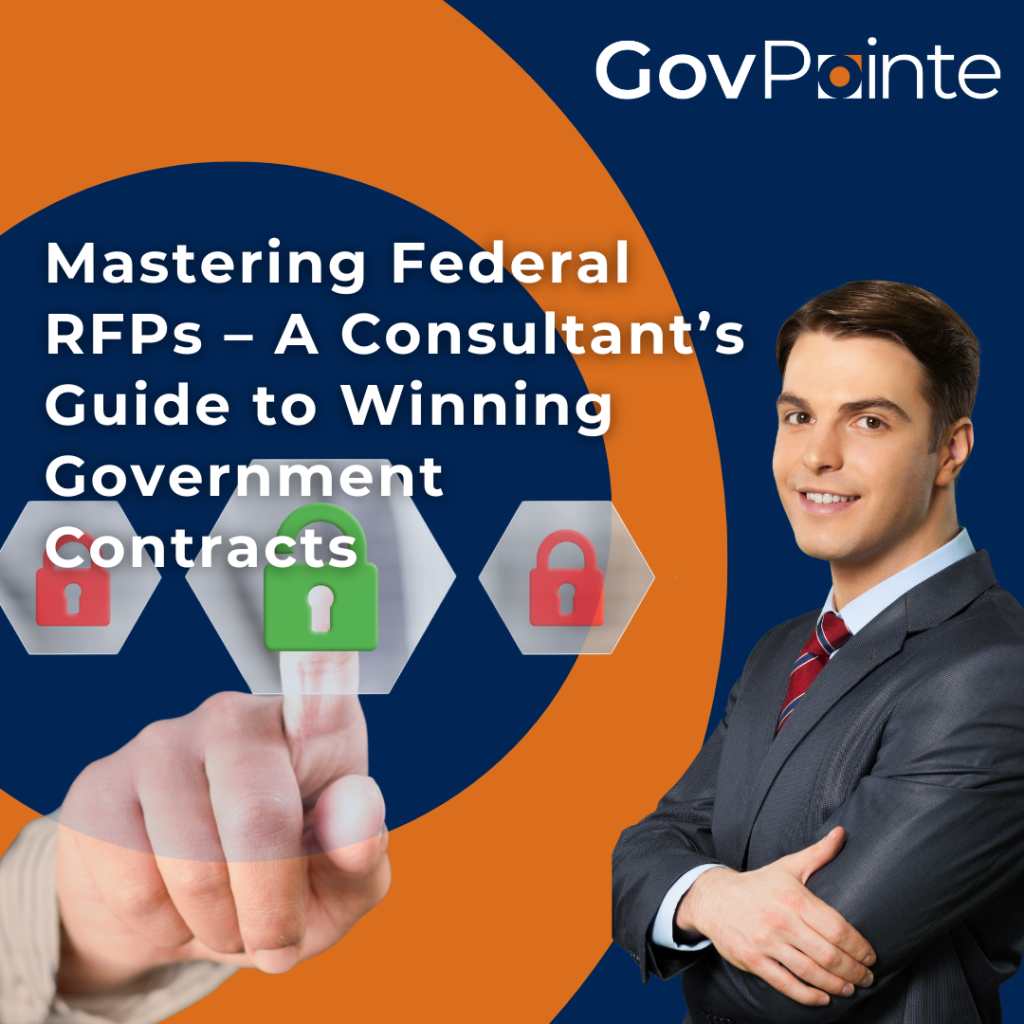Mastering Federal RFPs – A Consultant’s Guide to Winning Government Contracts

Winning a federal contract is not just about submitting a proposal—it’s about strategic positioning, understanding agency needs, and executing a proposal that aligns seamlessly with federal procurement requirements. At GovPointe, we have spent years guiding businesses through this highly competitive landscape, helping them secure multi-million-dollar government contracts. If your organization is serious about entering the federal marketplace, you must master the art of responding to Requests for Proposals (RFPs).
Understanding Federal RFPs – More Than Just a Solicitation
A Federal Request for Proposal (RFP) is more than just a document seeking bids—it represents an opportunity to establish long-term relationships with federal agencies. Unlike simpler contracting mechanisms like Requests for Quotations (RFQs), which focus mainly on price, RFPs emphasize technical expertise, past performance, and a company’s ability to provide innovative solutions. The businesses that succeed in securing RFP-based contracts understand that compliance alone is not enough; differentiation and strategic storytelling are crucial.
Key Steps to Developing a Winning RFP Response
1. Dissecting the RFP – Read Between the Lines
Many companies make the mistake of skimming an RFP and jumping straight into proposal writing. The most successful contractors, however, conduct a deep analysis to understand not just the stated requirements but also the underlying priorities of the issuing agency. Here’s how you should approach an RFP:
- Mission Alignment: Research the agency’s strategic goals and priorities—what broader initiatives is this RFP supporting?
- Evaluation Criteria: Look beyond the technical sections and determine how your proposal will be scored.
- Compliance Requirements: Ensure you meet every stipulation, from security clearances to past performance thresholds.
2. Positioning Your Business as the Ideal Partner
Agencies are not just looking for vendors—they are looking for trusted partners who can mitigate risk and deliver long-term value. Your proposal should clearly demonstrate:
- Proven Experience: Showcase past contracts and quantify your success with concrete metrics.
- Innovative Solutions: Explain how your company provides unique, cost-effective, and scalable solutions.
- Risk Mitigation Strategies: Address potential challenges upfront and present contingency plans.
3. Crafting a Proposal That Stands Out
Proposals that win contracts are not just technically compliant—they are persuasive, compelling, and clearly articulate why your company is the best fit. Your proposal should include:
- A Powerful Executive Summary: Capture the evaluator’s attention immediately by aligning with the agency’s mission and priorities.
- Detailed Technical Approach: Clearly explain how you will execute the project with a timeline, milestones, and deliverables.
- Pricing Justification: Federal agencies seek best value, not just the lowest price—justify your cost with a clear return on investment.
4. Compliance and Submission – Avoiding Costly Mistakes
Even the strongest proposal can be rejected due to minor compliance issues. Ensure that:
- All formatting and submission requirements are met.
- Every required attachment and certification is included.
- The proposal is submitted before the deadline—late submissions are rarely accepted.
GovPointe’s Expertise in Federal Contracting
At GovPointe, we specialize in guiding businesses through the complexities of federal procurement. Our team has helped clients secure contracts with agencies such as the Department of Defense, the Department of Homeland Security, and the General Services Administration. Our services include:
- Comprehensive Federal Market Intelligence Reports
- Proposal Writing and Compliance Review
- Small Business Certification and SAM Registration Support
- GSA Schedule Application Assistance
Want to maximize your federal contracting success? Explore the GovPointe Advantage Program and position your business for long-term government contracting success.
